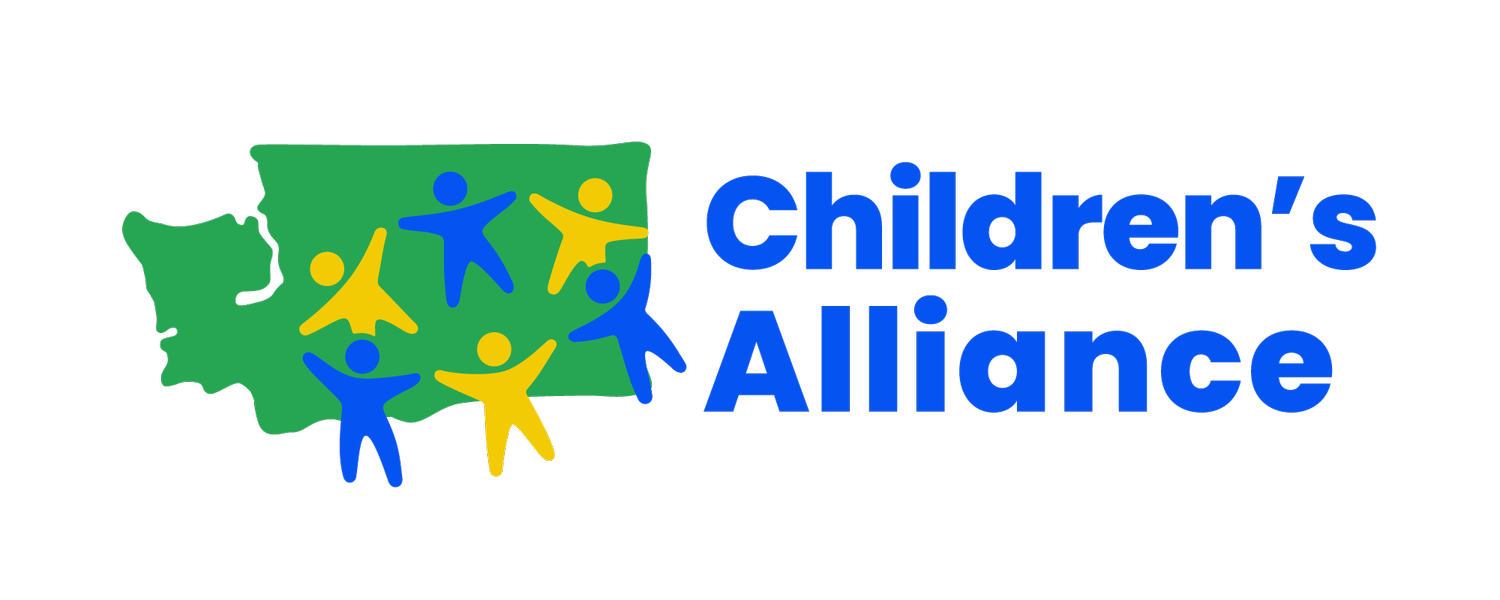EXCESSIVE ENGAGEMENT WITH ADDICTIVE ONLINE PLATFORMS CAN BE HARMFUL FOR KIDS. WE’RE WORKING ON A BILL TO CHANGE THAT.
As we move toward the 2026 legislative session, Children’s Alliance remains focused on addressing our state’s youth behavioral health crisis.
Research shows that excessive engagement with addictive online platforms, like social media, can increase the risk of behavioral health issues. Yet these platforms use data tracking and intentional design principles to keep young people online for as long as possible. We’re working to change that.
In the 2025 legislative session, we partnered with the Washington State Attorney General’s Office, Representative Lisa Callan, and Senator Noel Frame to introduce companion bills HB 1834 and SB 5708. These bills aimed to ensure that addictive online platforms make changes to their design and data gathering practices to enable young users to develop a healthy relationship with their products. SB 5708 passed the Senate with bipartisan support but stalled in the House where it was not given a hearing.
Since then, we’ve built broad, targeted support for this legislation—rallying parents, Big Tech employees, legal experts, youth behavioral health experts, and youth advocates. Working alongside these powerful advocates, we are excited to reintroduce this legislation in 2026 with the continued support of Attorney General Nick Brown and our legislative sponsors.
Here’s what the evidence shows about how addictive online platforms impact our kids
Children and youth are spending more time online than ever before. According to the American Academy of Child and Adolescent Psychiatry, children ages 8-18 spend, on average, 7.5 hours each day looking at a screen. In 2024, Pew Research found that nearly half of teens (46%) are online almost constantly compared to 24% of teens in 2014.
Furthermore, in a 2025 study, researchers found that nearly a third of adolescents had “increasing addictive use trajectories” for social media – meaning that they exhibited compulsive habits associated with their use of these platforms, such as feeling unable to stop using a device, or feeling anxious when separated from it. These behaviors were associated with increased risk of suicidal thoughts or attempts. Suicide is the third leading cause of death for adolescents nationally, and the second leading cause in Washington state. The overwhelming consensus among researchers is that increased use of social media is associated with increased symptoms of anxiety, depression, and “psychological distress.”
How will this legislation help users develop healthier relationships with addictive online platforms?
This legislation will require companies that operate addictive online platforms in our state to create a less harmful experience for kids by:
Stopping platforms serving targeted addictive feeds to minors.
Stopping platforms from sending push notifications during school and sleep hours—they interrupt learning, harm sleep, and drive compulsive checking.
Ensuring all users have access to settings that promote privacy and healthy relationships with online content.
What you can do
Use your voice to compel lawmakers to act! If you believe that our kids deserve good behavioral health and the opportunity to engage online in a healthy way, click the button below to help move this legislation forward.
